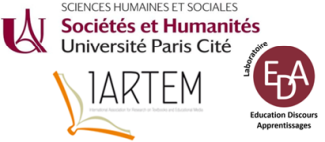This paper is connected to the specific conference theme 'climate change and education'.
In this paper I critically analyze the reconfiguration of agency of children evident in international educational scholarship concerned with the Anthropocene - the epoch in which humans have become the dominant force behind extensive planetary destruction and ecological, political and social crises, such as climate change. To the extent that the Anthropocene is connected to a function of human actions, social structures and political decisions, how children and young people in education are conditioned to relate and respond to the challenges it poses is an important focus of inquiry in education.
In this paper I ask, what kind of children's political agency is constructed in educational scholarship in context of the Anthropocene. This is important question in educational research, because – according to the theory of Michel Foucault utilized in this research - educational discourses (i.e., socially and culturally produced forms of knowledge) structure and shape how we think about, act upon and practice education and it also shapes the possible agency positions of children (Bacchi & Eveline 2010). Furthermore, educational scholarship don't just shape educational practices and children's agency positions in the present, but also importantly have effects on the future, because the children participating in education today are future citizens. Political agency is understood here as the capacity and potential of individuals and collectives to resist and alter social order. Therefore, which kind of political agency of children is constructed in the education scholarship, has practical effects on the political capacity of children at the present and future citizens to alter the anthropogenic problems, such as climate change.
Applying Foucault's ideas related to problematization and Bacchi's method “What is the problem represented to be?”, I discuss forms of political agency constructed in these educational discourses. As is the case with any form of knowledge, educational scholarship and policy texts discursively produces particular kinds of problem representations requiring particular kinds of ideal political agency as a “solution” to those problems (Bacchi & Eveline, 2010; Foucault, 1994). I analyse in this paper contemporary international educational scholarsip concerned of the Anthropocene, which is mostly connected to the early childhood education and childhood studies, based on posthuman and new materialist theories. The data of analysis includes peer-reviewed articles concerned of the education of children in the Anthropocene between years 2015-2020.
I argue in this paper that the educational scholarship concerned of the Anthropocene radically re-conceptualize the traditionally understood agency of children. This means, that agency traditionally understood in Western scholarship as something which is individual, intentional, rational, autonomous, and exclusively human form is radically questioned in favor of a form of agency that is held by the analysed articles to be relational and more-than-human agency, distributed between materials for example.
I argue that this might be problematic in the context of the anthropogenic crises, such as climate change, because this agency production tends to limit the curative and resistant potential of children in the Anthropocene, both individually and collectively. This runs the risk of depoliticization of children's agency – which means that the agency of children is limited - depriving children of capacities to make a difference and alter change in the world. That is because agency which is not held as intentional and subjective makes it difficult to held accountability and responsibility of problems of the anthropogenic crises and alter them. Children's political agency, and voice, for example, are seen as outdated in analysed articles, not least because they are rooted in humanist ideas about children as potential or actual change agents.
Thus, I argue that the educational scholarship concerned of the Anthropocene – while emphasizing relational forms of agency– runs the risk of failing to adequately address the human and planetary predicament entangled with complex systems of power relations. Yet, the educational scholarship concerned the Anthropocene also open up important new ways of thinking agency as relational, collective and more-than-human. I claim that it is important for educational scholarship to further research the potentials of childrens political agency in the Anthropocene, because of the scale of the problems anthropogenic crises such as climate change have for humans globally. Education might play important role for rethinking the possibilities for political possibilities to alter these problems.
References
Bacchi, C., & Eveline, J. (2010). Approaches to gender mainstreaming: What's the problem represented to be? In C. Bacchi & J. Eveline (Eds.), Mainstreaming politics: Gendering practices and feminist theory (pp. 111–138). The University of Adelaide Press.
Common Worlds Research Collective. (2020). Learning to become with the world: Education for future survival. Paper commissioned for the UNESCO Futures of Education report 2021.
Foucault, M. (1990). The history of the sexuality, volume 1. An introduction. Penguin Books.
Foucault, M. (1994). Polemics, politics and problematizations. In P. Rabinow (Ed.), Ethics: The essential works of Foucault (Vol. 1, pp. 111–119). The Penguin Press.
Yliniva, K. & Brunila, K. (2023). Re-Conceptualizing the Political Agency of Young Children in the Anthropocene. In: Wyn, J., Cahill, H., Cuervo, H. (eds) Handbook of Children and Youth Studies. Springer, Singapore. https://doi.org/10.1007/978-981-4451-96-3_126-1

 PDF version
PDF version
